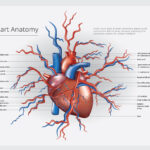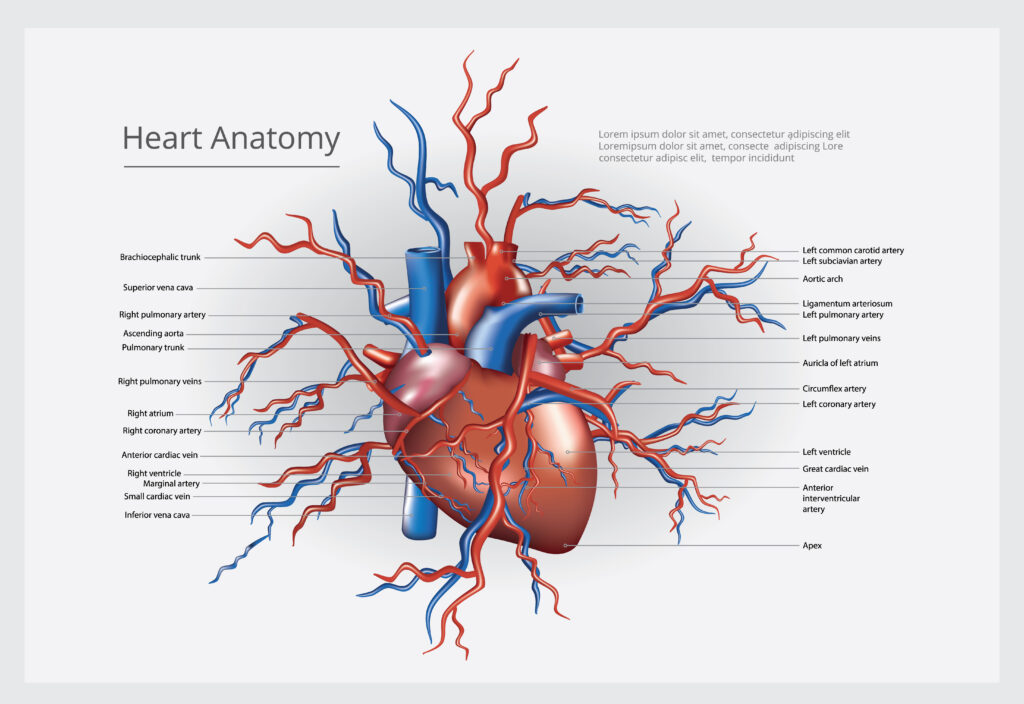In today’s fast-paced world, maintaining good health has become more important than ever. One crucial aspect of overall well-being is the health of our arteries. Arteries play a vital role in transporting oxygen-rich blood to all parts of the body, ensuring proper functioning of organs and tissues. However, due to various factors such as poor lifestyle choices and genetic predisposition, our arteries can become clogged and lead to serious health issues. In this comprehensive guide, we will explore the importance of arterial health, the causes of artery blockage, and effective strategies to maintain optimal well-being.
Understanding Arterial Health
What are Arteries?
Arteries are blood vessels that carry oxygenated blood away from the heart to various parts of the body. They are like highways, ensuring a smooth flow of blood to nourish our organs, muscles, and tissues. Arteries have a thick muscular wall that helps maintain their structure and regulate blood pressure.
The Importance of Arterial Health
Maintaining healthy arteries is crucial for overall well-being. When arteries are clogged or narrowed due to plaque buildup, it restricts blood flow and can lead to serious health conditions such as heart disease, stroke, and peripheral artery disease. By prioritizing arterial health, we can reduce the risk of these life-threatening conditions and improve our quality of life.
Causes of Artery Blockage
Atherosclerosis: The Silent Culprit
The primary cause of artery blockage is a condition called atherosclerosis. It occurs when plaque, a combination of cholesterol, fat, calcium, and other substances, builds up inside the arteries. Over time, this plaque hardens and narrows the arteries, restricting blood flow. Atherosclerosis is often referred to as the silent killer because it can progress silently for years without any noticeable symptoms.
Risk Factors for Artery Blockage
Several factors contribute to the development of atherosclerosis and artery blockage. These include:
– High cholesterol levels
– High blood pressure
– Smoking
– Diabetes
– Obesity
– Sedentary lifestyle
– Family history of heart disease
Strategies for Maintaining Arterial Health
Adopting a Heart-Healthy Diet
A well-balanced diet plays a crucial role in maintaining arterial health. Incorporating the following foods into your diet can help reduce plaque buildup and promote overall cardiovascular health:
– Fatty fish rich in omega-3 fatty acids, such as salmon and mackerel
– Fresh fruits and vegetables
– Whole grains
– Nuts and seeds
– Healthy fats like olive oil and avocado
Regular Physical Activity
Engaging in regular physical activity is essential for arterial health. Exercise helps lower blood pressure, reduce cholesterol levels, and maintain a healthy weight. Aim for at least 150 minutes of moderate-intensity aerobic activity or 75 minutes of vigorous-intensity activity per week. Find activities you enjoy, such as walking, swimming, or cycling, to make it a sustainable part of your routine.
Quit Smoking
Smoking is a major risk factor for artery blockage and heart disease. It damages the lining of the arteries, promotes plaque formation, and increases the risk of blood clots. Quitting smoking is one of the most significant steps you can take to improve arterial health and overall well-being. Seek support from healthcare professionals or join smoking cessation programs to increase your chances of success.
Manage Stress Levels
Chronic stress can negatively impact arterial health. It increases blood pressure, promotes inflammation, and contributes to unhealthy lifestyle choices. Incorporate stress management techniques into your daily routine, such as meditation, deep breathing exercises, yoga, or engaging in hobbies that bring you joy. Prioritizing self-care and finding healthy ways to cope with stress can significantly improve arterial health.
Regular Health Check-ups
Regular health check-ups are essential for monitoring arterial health and identifying any potential issues early on. Schedule routine visits with your healthcare provider to assess your blood pressure, cholesterol levels, and overall cardiovascular health. They can provide personalized recommendations and interventions to maintain optimal arterial health.
FAQ (Frequently Asked Questions)
Q1: Can a healthy diet alone prevent artery blockage?
A1: While a healthy diet is a crucial component of maintaining arterial health, it is not the sole factor. Other lifestyle choices, such as regular exercise, not smoking, and managing stress, are equally important in preventing artery blockage.
Q2: Are there any natural supplements that can improve arterial health?
A2: Some natural supplements, such as omega-3 fatty acids, garlic extract, and CoQ10, havebeen shown to have potential benefits for arterial health. However, it is important to consult with a healthcare professional before starting any new supplements, as they may interact with medications or have adverse effects.
Q3: Can artery blockage be reversed?
A3: In some cases, lifestyle changes and medical interventions can help slow down or reverse the progression of artery blockage. However, the extent of reversal depends on various factors, including the severity of the blockage and individual health conditions. It is essential to work closely with healthcare professionals to develop a personalized treatment plan.
Q4: Are there any warning signs of artery blockage?
A4: Artery blockage often progresses silently without noticeable symptoms until a significant event, such as a heart attack or stroke, occurs. However, some warning signs may include chest pain, shortness of breath, fatigue, and leg pain during physical activity. If you experience any of these symptoms, seek medical attention immediately.
Q5: Can genetics play a role in arterial health?
A5: Yes, genetics can influence an individual’s predisposition to artery blockage and cardiovascular diseases. If you have a family history of heart disease or other arterial conditions, it is essential to be proactive in maintaining a healthy lifestyle and regularly monitoring your arterial health.
Finally, maintaining optimal arterial health is crucial for overall well-being and reducing the risk of serious cardiovascular conditions. By adopting a heart-healthy diet, engaging in regular physical activity, quitting smoking, managing stress, and scheduling regular health check-ups, we can take proactive steps towards ensuring the health of our arteries. Remember, prevention is key, and small lifestyle changes can make a significant impact on our arterial health. Prioritize your well-being and start taking care of your arteries today!





















